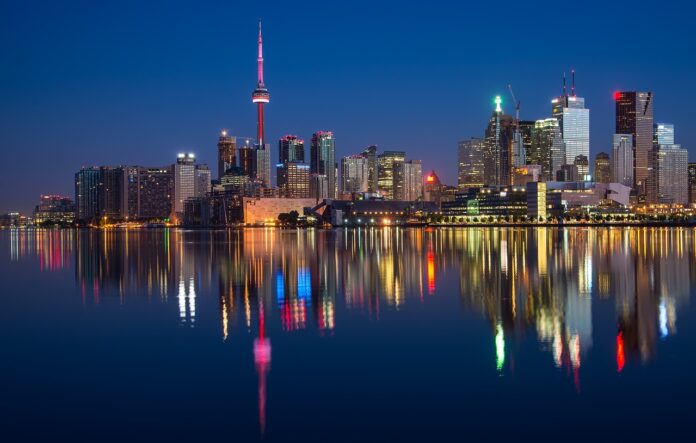25 Interesting Facts About Canada
- Location and Borders: Canada is located in North America. It is bordered by the United States to the south and has coastlines along the Atlantic Ocean to the east, the Pacific Ocean to the west, and the Arctic Ocean to the north. Canada is the second-largest country in the world by land area.
- Square: The country covers an area of approximately 9.98 million square kilometers.
- National Currency: The currency of Canada is the Canadian Dollar (CAD).
- Official Languages: The official languages of Canada are English and French.
Interesting Facts About Canada:
- Longest Border: Canada and the United States share the world’s longest international border, which spans nearly 9,000 kilometers.
- Extensive Coastline: Canada boasts the longest coastline of any country, measuring around 265,000 kilometers.
- Monarch: Although Canada is a constitutional monarchy with the British monarch as the head of state, this role is largely ceremonial.
- Forests and Lakes: Approximately 31% of Canada’s land area is covered by forests, and the country is home to around 2 million lakes, making up nearly 60% of the world’s freshwater lakes.
- National Animal: The North American beaver is Canada’s national animal, symbolizing the country’s rich natural heritage.
- Education: Canada is known for its high level of education, with over half of its population holding a university degree.
- Northernmost Settlement: The northernmost inhabited place on Earth is located in Canada. Alert, a military base on Ellesmere Island, holds this title.
- UFO Landing Pad: The world’s first UFO landing pad was built in Canada, located in the town of St. Paul, Alberta.
- National Flag: Canada’s current national flag, often called the “Maple Leaf,” was adopted on February 15, 1965. It features a red maple leaf, symbolizing the country’s natural heritage.
- Ukrainian Population: Canada is home to approximately 1.3 million Ukrainians, making it the third-largest Ukrainian population outside of Ukraine.
- Extreme Cold: Canada holds the record for the lowest temperature ever recorded in North America, which was -62°C in Snag, Yukon, in 1947.
- Low Population Density: Canada has one of the lowest population densities in the world, with just 3-4 people per square kilometer.
- Polar Bears: Canada is considered the world capital for polar bears, and it even has a temporary prison for these animals to ensure their safety.
- Agriculture: Canada is a leading agricultural producer, particularly known for its wheat and other grain crops.
- World’s Longest Street: Yonge Street in Toronto is recognized as the world’s longest street, stretching 1,896 kilometers from the waterfront to the town of Rainy River.
- Hockey Legacy: Canada is the birthplace of hockey, with the first professional hockey team established in 1904. The country has a strong hockey tradition and team.
- Desert: Canada has one desert, the Nk’mip Desert, located in British Columbia, which is known for its unique desert flora.
- Largest Uninhabited Island: Devon Island in Nunavut is the largest uninhabited island in the world, often used for scientific research and testing.
- Cultural Festivals: Canada hosts a variety of cultural festivals throughout the year, including the Toronto International Film Festival and the Calgary Stampede.
- Niagara Falls: One of the most famous natural attractions in the world, Niagara Falls straddles the border between Canada and the United States and is a major tourist destination.
- Multiculturalism: Canada is known for its multicultural policy and diverse population, with over 200 ethnic origins represented in the country.
- Maple Syrup: Canada is the world’s largest producer of maple syrup, accounting for around 70% of the global supply.
- National Parks: Canada has 48 national parks, showcasing its diverse landscapes from mountains and forests to prairies and tundra.
- Canadian Shield: The Canadian Shield is a large geological shield covered by a layer of soil and vegetation, rich in minerals and covering much of eastern and central Canada.
- Space Contributions: Canada has made significant contributions to space exploration, including the development of the Canadarm, which was used on the Space Shuttle and the International Space Station.
